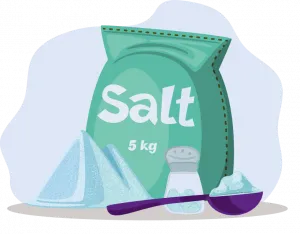Immunity | 5 min read
Are Your Food and Lifestyle Choices Compromising Your Immune System?
Medically reviewed by
Table of Content
Key Takeaways
- having a strong immune system is key to protecting yourself from common illnesses
- While some factors are well-known, others aren’t common knowledge
- get rid of any unhealthy practices or lifestyle choices you may be making
Besides this, lifestyle choices and certain foods also compromise the immune system and suppress optimal function. While some factors are well-known, others aren’t common knowledge and you may go through life without realising the damaging effect they have on your health. To offer perspective and give you clarity, here are 7 factors that compromise the body’s immune system.
1. Excess sugar
Sugar is a common ingredient in many dishes and it is a fact that too much of it can cause lasting damage to your body. It negatively affects cells in the immune system that specifically combat harmful bacteria. Sugar also causes low-grade inflammation, which is linked to the development of several diseases.
Further, it damages skin and can greatly set back any health-conscious changes you plan to achieve with diet. While removing sugar entirely from your diet isn’t necessary, intake should be limited to 6 teaspoons for women and 9 teaspoons for men per day.
2. Drinking too much alcohol
Alcohol is known to suppress the immune system and restricts its ability to defend the body against infections. For instance, alcohol can kill healthy gut bacteria by causing inflammation. These microorganisms are responsible for keeping the immune system healthy and with impaired function, infections can quickly worsen into severe illnesses.
In fact, health experts are alarmed by the fact that the sale of alcohol has spiked in the past months. Increased alcohol consumption can make you more vulnerable to COVID-19 and other deadly illnesses.
3. Lack of sleep
When you don’t rest and sleep enough, your body doesn’t produce enough of the proteins known as cytokines. Certain protective cytokines are required for optimal immune system function, without which you’re more vulnerable to infection. To make matters worse, lack of sleep can also affect recovery time. This is why you should develop a sleep schedule and maintain it religiously. Getting 7-9 hours of recommended sleep is good for general health.

4. Stress
Stress exerts a great deal of pressure on your immune system. This is especially worse in cases of chronic stress as it reduces the overall efficacy of the body’s immune system. In fact, chronic stress means the body is steadily exposed to stress hormones. These suppress immune function greatly and can make it difficult for you to fend off common illnesses like the flu or a cold.

Additional Read: A Quick Guide to Hypertension
5. Too much fast food
Fast food is high in fat, carbohydrates and salt, and puts the immune system to action. The body treats this type of food as an infection and begins to counteract its effects immediately. As such, constant and prolonged state of ‘high alert’ of your immune system causes it to become aggressive. This isn’t a good thing as it linked with the development of ailments like diabetes and arteriosclerosis.
6. Excess Salt
Apart from high blood pressure and the risk of developing cardiovascular disease, excess salt has negative effects on the immune system, making you more susceptible to diseases. This is because excess dietary salt inhibits the antibacterial function of a specific type of immune cell. As a result, you’re more likely to fall sick due to bacterial infections if salt intake isn’t kept in check. Ideally, it is recommended that you do not consume more than 5.8g of salt per day, which equates to a teaspoon.

7. Lack of Exercise
A sedentary lifestyle comes with several downsides, which include inflammation, chronic disease and impaired immune function. Moderate exercise helps this by activating the immune system and circulating immune cells to rid the body of pathogens and infections. This flooding of the bloodstream occurs more regularly for those who exercise often. Naturally, a lack of exercise leaves you more vulnerable to disease. A study has proven that a moderate form of regular exercise reduces the incidence of respiratory diseases like COVID-19.

Staying healthy can be as simple as cutting out bad lifestyle habits and eating cleaner, more nutritious foods. This way, your immune system can work with optimally to protect you from several diseases and just the coronavirus. You can also take it one step further and get rid of any unhealthy practices or lifestyle choices you may be making. These include smoking, tobacco consumption, vaping and even isolation. Studies indicate that all of these have negative effects on immunity and adopting healthier habits is a good way to stay healthy.
References
- https://www.sciencedaily.com/releases/2019/10/191002144257.htm, https://www.livescience.com/52344-inflammation.html#:~:text=Unlike%20acute%20inflammation%2C%20chronic%20inflammation,found%20in%20blood%20or%20tissue.
- https://www.healthline.com/health-news/can-alcohol-hurt-your-immune-system-during-covid-19-outbreak#Drinking-impairs-immune-cells-in-key-organs
- https://www.mayoclinic.org/diseases-conditions/insomnia/expert-answers/lack-of-sleep/faq-20057757#:~:text=Yes%2C%20lack%20of%20sleep%20can,if%20you%20do%20get%20sick.
- https://www.webmd.com/cold-and-flu/cold-guide/10-immune-system-busters-boosters#2
- https://www.businessinsider.com/this-is-what-fast-food-does-to-your-immune-system-2018-1?IR=T
- https://www.medicalnewstoday.com/articles/too-much-salt-weakens-the-immune-system#Common-bacterial-infections
- https://www.self.com/story/exercise-and-immune-system,
Disclaimer
Please note that this article is solely meant for informational purposes and Bajaj Finserv Health Limited (“BFHL”) does not shoulder any responsibility of the views/advice/information expressed/given by the writer/reviewer/originator. This article should not be considered as a substitute for any medical advice, diagnosis or treatment. Always consult with your trusted physician/qualified healthcare professional to evaluate your medical condition. The above article has been reviewed by a qualified doctor and BFHL is not responsible for any damages for any information or services provided by any third party.



